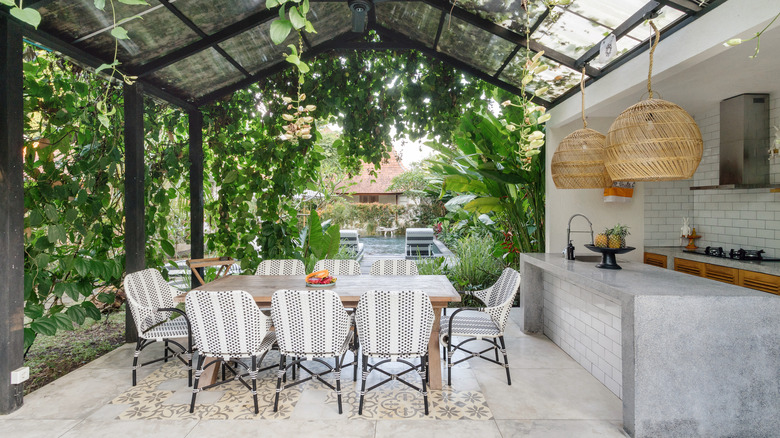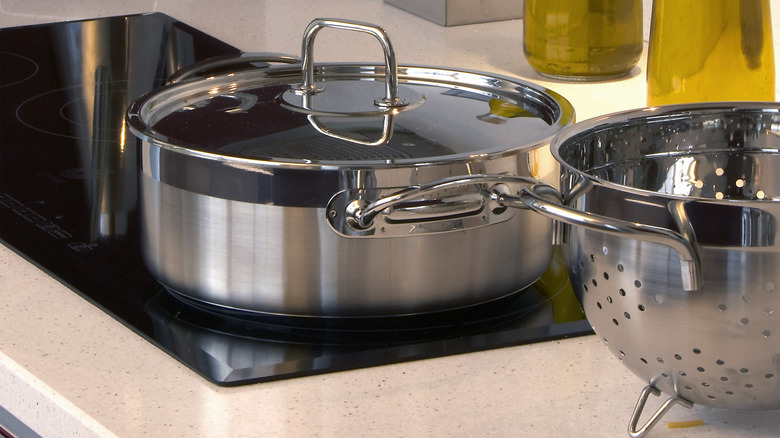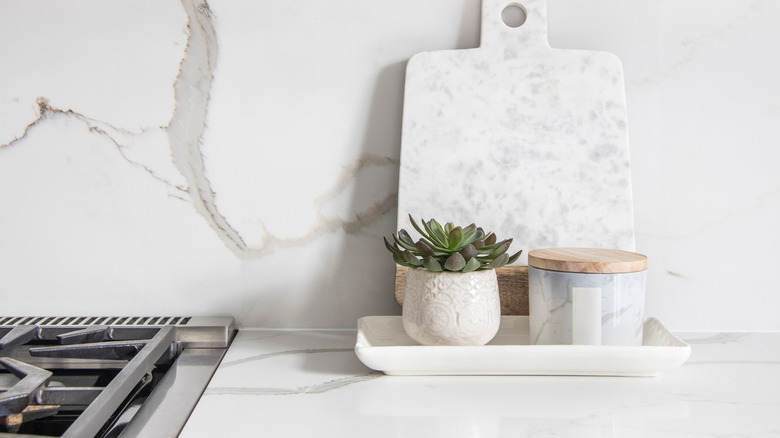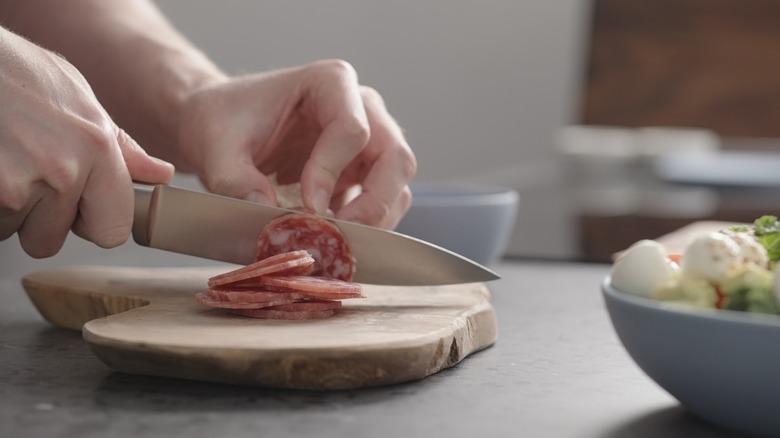The 3 Best Countertop Materials For Your Outdoor Kitchen
An outdoor kitchen is fun to have in so many ways. It can make cooking more enjoyable for homeowners who love spending time outside while also creating ample opportunities for hosting guests. Additionally, an outdoor kitchen can score sellers a sizeable return on investment (per Texas Outdoor Oasis), especially in areas where they can be utilized almost all year long.
While there are many different styles that can inspire your outdoor kitchen, practical factors should also guide your selection. One such factor is the durability of your appliances, tools, and anything else that gets installed. No matter how good they look, they should be able to withstand the elements and frequent use.
Countertops need to be especially durable since they'll be used a lot as you prep food and dine. Before choosing a material for your outdoor kitchen countertop, consider if it's strong, easy to maintain, and highly resistant to impact. It should also be resistant to high temperatures and preserve its color over time (via Outeriors). Ready to make a choice? Here are the three best countertop materials for your outdoor kitchen.
Granite
Known for its sleek aesthetics, this hard stone is a commonly used countertop material that's admired for the touch of class it adds to kitchens. Granite is durable and does well to resist stains, scratches, and cracks, making it ideal for outdoor use. However, it still needs to be protected from direct sun exposure and winter weather as it doesn't resist extreme weather conditions very well. For this reason, you'll want your granite countertops to stay covered during the winter and kept shaded during the summer (per Arch City Granite and Marble).
Like other natural stone materials, granite can be quite porous, which is why sealing your granite countertop is critical, according to Cutting Edge Countertops. For everyday cleaning, you can use dish soap and water or a cleaner that is specifically designed for granite surfaces. Avoid acidic cleaners, however, as they can damage both the seal and the granite underneath. It's also a good practice to use coasters and wipe up spills immediately, according to Marble.com. Unfortunately, granite is fairly expensive and usually requires professional installation and maintenance. However, it's still one of the best countertop materials for your outdoor kitchen.
Quartz
Quartz is another popular natural stone surface for home décor and even sports some benefits over granite, such as its superior durability, ability to resist stains, and ease of repair (per CRD Design Build). These countertops are also known for their beautiful, uniform appearance, and can be designed to mimic other types of stone.
Since quartz surfaces are nonporous (per Corridor Kitchens), they can have a wide variety of liquids spilled onto them without becoming stained or damaged. Additionally, they often don't need to be professionally sealed or maintained. Quartz even outperforms similar materials in terms of its antimicrobial properties, making it an alluring option for health-conscious homeowners.
However, there are still factors to consider before installing a quartz countertop. Something to note about this material is that there are specific types intended for both indoor and outdoor use. Thus, you should make sure that you have selected the right type of material for your outdoor kitchen. These countertops are also fairly expensive compared to those made from budget-oriented materials.
Concrete
Concrete is one of the best materials for your outdoor kitchen due to its strength and versatility. With the durability of this material, you won't have to worry about your outdoor countertop bowing out to the test of time. It's also a fairly unique option because it can be designed in any shape and color, per Trueform Concrete.
Concrete may also be the ideal material for DIY lovers. To make your own concrete countertops, you have to install the frame, prepare and pour the concrete, leave it to cure, and then remove the frame (via Backyard Scape). While the whole process takes weeks and is difficult for beginner DIYers, you'll feel a sense of pride every time you use the countertop or host guests in your outdoor kitchen.
Like granite, concrete needs to be sealed to prevent it from becoming discolored, stained, and absorbing liquids. Concrete can also develop little cracks and scratches, but they aren't as much of an issue compared to other materials. According to ConcreteNetwork.com, you can expect a well-maintained concrete countertop to last for decades.



